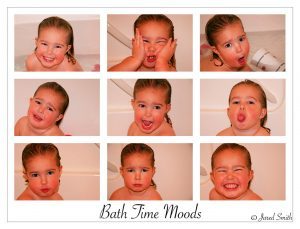There are so many genres of music out there – it’s actually very difficult, if not downright impossible, to be acquainted with all of them. The interesting thing with music is that it affects you whether you know a song or not. As such, you can use any type of music in whichever way you see fit.
The human brain is affected in different ways when different types of music are played. Knowing this can help you have an easier time going about your daily tasks. Whether you need to work or unwind, your choice of music can help you do what you need to do effectively.
Work Music
Work music, or songs that will boost your productivity, actually exist, and thankfully so. You can switch them on while at work or when preparing for an interview. If you need to study, for instance, there’s some music that will help you do just that. On the other hand, if your work doesn’t involve reading, then jams can boost your creativity. The following post describes this in more detail:

6 Types of Music for Maximum Productivity, According to Science
If you haven’t explored the mood-shifting playlists on Spotify or Apple Music yet, you’re way behind the curve.
Music can be instrumental (pun intended) in helping you maintain focus, dig into your work, and get things done. But only if it’s the right type of music.
For example, a 2010 study published in Applied Cognitive Psychology states, “Absorbing and remembering new information is best done with the music off.” However, it went on to explain, “when a well-practiced expert needs to achieve the relaxed focus necessary to execute a job he’s done many times before, music can improve performance.” Via Inc
From the post above, you can invest in the different types of music to make your work a lot more enjoyable.
Any-time Music
If you are looking for music that will work for you in whatever situation that you are in, then you are lost for choice as well. Classical music is one genre you want to befriend. This can be used in the house, when relaxing, during your family time… etc.

The following post gives a small collection of some of the classical music you can use any time:
BEST CLASSICAL MUSIC FOR ALL MOODS
Whether working away and wanting some background music, or sitting down after a hard day, classical music can be a wonderful accompaniment. Through studies on the brain, it has been shown to lift your mood, acting as a natural mood enhancer (better than Prozac surely).
Any article giving ‘the best’ of anything is, by its very nature, going to be highly subjective, but here are some of the greatest pieces of classical music, that, no matter what mood you are in, will inspire the soul and make you feel much better. Via Trazee Travel
With classical music, the list is exceedingly long. The ones in the post above are just a sample of what you can use.
Angry ?
There are those times when something happens and you literally feel your temper going through the roof. These are the times when you really do not want to do anything that you’ll regret. It’s always best to breathe in and out- A LOT! And pause a lot too.

Surprisingly, studies show that you can relieve your stress levels or anger by listening to music that is not soft – heavy metal to be precise. The following post describes this in detail:
Researchers Find Out What Heavy Metal Music Does To Our Mental State And The Results Are Surprising
A new study from the University Of Queensland in Brisbane, Australia has provided the world with a new perspective on extreme music. According to the researchers, extreme music was categorized by having powerful sounds that were heavy and aggressive, and expressive vocals. This included many of the sometimes taboo genres of music like hardcore, heavy metal, emo, screamo and punk. What the researchers were trying to find out was if aggressive music leads to anger and violence. What they found out was shocking to say the least.
The Findings
Although being carefully selected, the ones that were listening to the aggressive music did not subsequently act out violently. “Rather, they showed a decrease in subjective hostility and irritability that was equivalent to those who sat in silence,” explain the researchers. They continue, “This study found that extreme music fans listen to music when angry to match their anger, and to feel more active and inspired. They also listen to music to regulate sadness and to enhance positive emotions.” Via Lifehack
Now you can have a playlist ready for whichever task (or mood) you have. Enjoy!
Featured Image: Image Credit
Humans have a strong relationship with music because of the way that music affects our feelings, our thinking, and our emotional state.
— Fact (@Fact) September 24, 2016
Evidence that music training reduces aggression. https://t.co/ABU2PS44Ml
— Ted Gioia (@tedgioia) September 21, 2016
Related Articles:
The effect different genres of music can have on your mind, body, and community.
Sen. Ted Cruz stopped listening to rock music after 9/11. True story.
“On 9/11, I didn’t like how rock music responded,” he said on “CBS This Morning.” “And country music, collectively, the way they responded, it resonated with me.”
Fair enough. The senator didn’t elaborate on which country acts in particular resonated with him following the attack, but it doesn’t matter. What matters is that for just about 15 years, he’s sworn off rock music. And while it’s not hurting the industry or the artists, it’s not doing Sen. Cruz any favors either. Via Upworthy
Let’s Get Physical: The Psychology of Effective Workout Music
New research clarifies why music and exercise make such a good team, and how to create an optimal workout playlist
“I dare them to find the iPod on me,” Richie Sais told the New York Times in 2007, when he was preparing to run the Marine Corps Marathon. USA Track & Field, the national governing body for distance racing, had just decided to ban athletes from using portable music players in order “to ensure safety and to prevent runners from having a competitive edge.” Rais resolved to hide his iPod shuffle under his shirt. Many fellow runners protested the new rule, which remains in effect today in an amended form: It now applies only to people vying for awards and money. Via Scientific American
Network Science and the Effects of Music Preference on Functional Brain Connectivity: From Beethoven to Eminem
Most people choose to listen to music that they prefer or ‘like’ such as classical, country or rock. Previous research has focused on how different characteristics of music (i.e., classical versus country) affect the brain. Yet, when listening to preferred music—regardless of the type—people report they often experience personal thoughts and memories. To date, understanding how this occurs in the brain has remained elusive. Using network science methods, we evaluated differences in functional brain connectivity when individuals listened to complete songs. We show that a circuit important for internally-focused thoughts, known as the default mode network, was most connected when listening to preferred music. Via Nature

